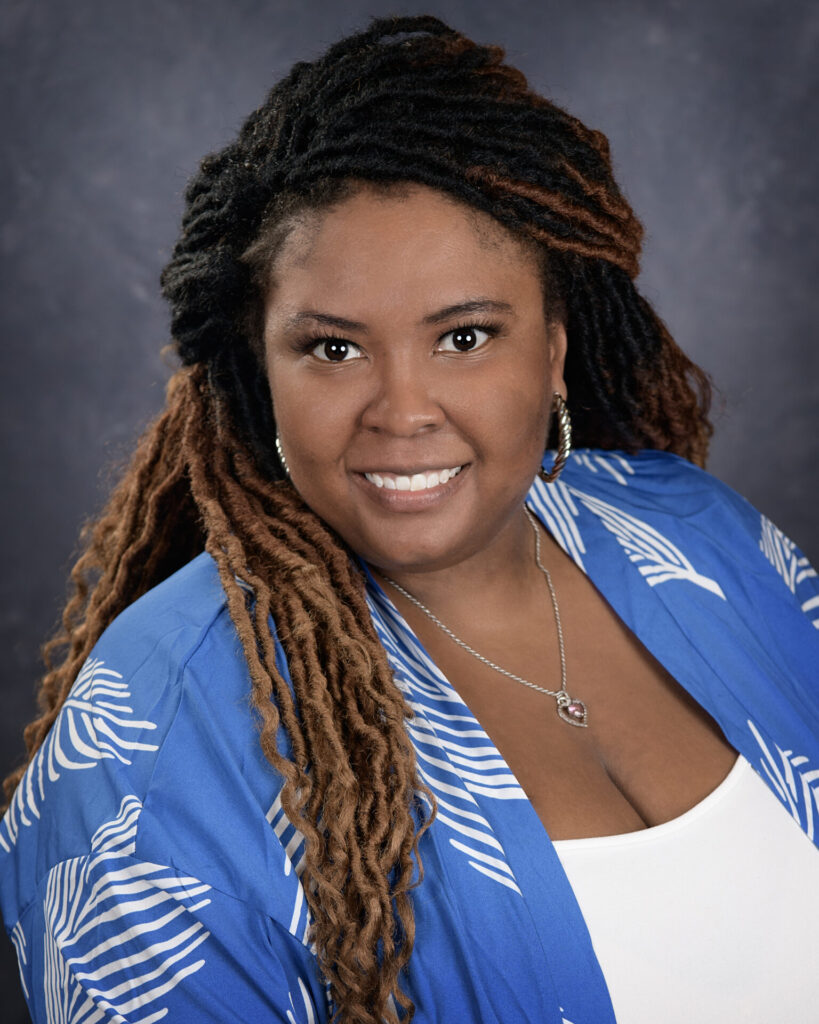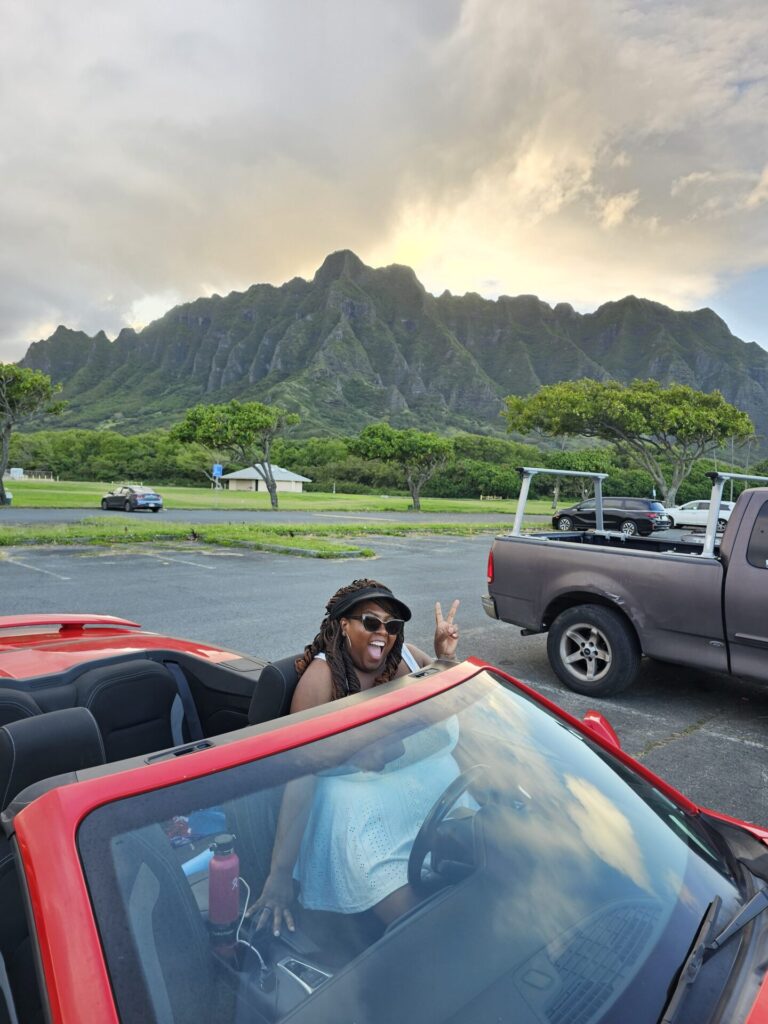
How are you?
A loaded question given the current state of research- and the country. Overall, taking it day by day. Staying focused on my goals but preparing for any situation that could arise soon.
Please introduce yourself. What should the world know about Jasmine Sheria Edwards?
Originally from western NY (Rochester), I moved to Miami (Florida) for graduate school and came here as a postdoc in the fall of 2022. I probably would be a history teacher or archeologist if I hadn’t decided to pursue biological science. I love learning about ancient civilizations and enjoy watching documentaries above most other TV programs… detective and supernatural shows too which I why I was drawn to science eventually.
I love to travel and look for opportunities in other cities and countries. I set a goal to visit at least one NEW country every year for at least 2 weeks to get a feel for living like a local.
An (E/I)NFJ Myer-Briggs personality type (Protagonist/Advocate) and Libra to a tee; a birthday month type of girl who values balance in life… charismatic, empathetic, supportive, and a deep-thinker.
Can you tell us about your research area, and what inspired you to pursue this field?
My research is in Women’s Health, specifically focusing on predicting and preventing adverse pregnancy outcomes such as miscarriages, preterm birth, stillbirth, and maternal-fetal morbidity and mortality. The lack of Black/African women representation in clinical studies, health disparities, and the overall lack of research in women’s health inspired me to pursue a project that utilizes basic science to address clinical needs.
You love to travel and you even spent some time working on a project in Zambia. How was that experience?
In February of 2024, I spent a month in Lusaka, Zambia! The NIH T32 Global Women’s Health Fellowship is typically for medical students training in obstetrics and gynecology. However, they opened the opportunity to me, a biomedical postdoc, as my project is in collaboration with The UNC Institute for Global Health and Infectious Diseases. I always wanted to experience conducting research in a different country. To my surprise I did early on in my postdoc career and in a mentor/training laboratory personnel role.
I appreciated my time there as I was in a laboratory setting completely staffed by “people who look like me” which is something I’ve never encountered in The States. It was nice not to be the only one in the room and see a balanced mixture of people at each stage in the career ladder. Overall, nothing but positive interactions with Zambians 🙂 On weeknights and weekends, I was able to explore the city, taste traditional foods, go on a couple safaris, and experience the roaring waters of Mosi-Oa-Tunya (Victoria Falls)!
As I love to travel, since I started my postdoc, I have traveled to Philadelphia (National Postdoc Association), UC Irvine (Diverse Scholars), Bethesda (StemNoire), and Hawaii (AAI Immunology2025) for conferences… Dominican Republic, Spain, Japan, and Canada for vacation. Upcoming travels include Dallas, Miami, and England this summer 🙂
You are active with the Postdoc Association and have co-chaired the BIPOC Alliance for several years. Can you speak a little about the value of these groups, and how the leadership position has helped you grow?
Yes, I joined the Postdoc Association (PDA) soon after starting at UNC. In September, the PDA hosted National Postdoc Appreciation Week, and the leadership team was recruiting co-chairs for affinity groups. Since the pandemic, there wasn’t a co-chair for the (formerly known as) Minority Postdoc Alliance. I planned on staying in my postdoc position for the full 5 years since my research involves a clinical component. Thus, the Black, Indigenous, People of Color (BIPOC) Postdoc Alliance (BIPOC-PA) was born. I’ve worked with two other co-chairs, Martha Johnson, PhD (2023-2024) and Phoebe Tchoua, DrPH/MPH (2024-2025).
Many postdocs have expressed the feeling of isolation, and this group is highly valuable to enhance a postdoc’s experience. The goal of the alliance is to provide a supportive-centralized space to address the unique needs of underrepresented postdocs who are often scattered across departments/buildings on campus. Our meetings and events are open to all, and we encourage engagement to increase interactions with a diversity of people (disciplines, gender, race/ethnicity, nationality, etc.) and for postdocs to expand their professional networks.
This leadership position has improved my networking skills. I became a point of contact between postdocs, the PDA, the Office of Postdoctoral Affairs, and my home department (Microbiology and Immunology) which is very valuable during this period of unprecedented change. I seek to hold a “community check-in” event this summer and another Unity Coffee Hour event (with postdocs, faculty, and staff) in the fall.
Website: https://research.unc.edu/pda/bipoc/
LinkedIn: https://www.linkedin.com/in/jasmine-s-edwards-ph-d-624585165/

How would you describe your experience at UNC as a postdoc? Do you have any advice for new postdocs, or things that you wish you had known when you first started?
My experience as a UNC postdoc has been very positive. My PI is very supportive, my co-workers are a fun bunch, and my project is progressing nicely. I have a better work-life balance with sufficient time for professional development and community outreach activities. I designed activities for science outreach events such as the UNC Science Expo and S.T.E.A.M. (Science, Technology, Engineering, Arts, Mathematics) Unity Day. We have taught the public about the science of skin color, minority people in S.T.E.A.M., and different cultures around the world. I’ve gained teaching experience being a teaching assistant in a clinical microbiology lab for medical students and participated in a Teaching & Learning workshop through UNC’s TIBBS (Training Initiatives in Biomedical & Biological Sciences) program. UNC has implemented training programs, like SPIRE (Seeding Postdoctoral Innovators in Research & Education), to provide teaching opportunities for postdocs.
I’m a person who makes an effort to find things to do and meet new people. However, there are times of exhaustion by taking on too many tasks leading to burn-out, and loneliness as most people I’ve met are from work, whereas most of my close friends and family are in Rochester or other states/countries. Thankfully, I can go home a couple times a year to reconnect with loved ones.
Advice: join UNC-affiliated and local groups/clubs/organizations to get the full community experience. Research fellowships for postdocs and know what postdoc year they cap eligibility (i.e. for postdocs with less than a certain number of years of experience). Seek mentors outside the lab; UNC has plenty of programs which postdocs can participate in to prepare you for all science-related careers in academia, industry, government, business, law, communications, and non-profit. De-stress: there are plenty of hiking trails, and the beach or mountains are a couple hours away – I always enjoy a nice long road trip to wherever. Never feel guilty about taking a long vacation. Collaborations can provide unexpected unique experiences – expand your social circles! Lastly, everyone’s timeline is different and adjust yours according to what works best for you and the life you want.
Can you recommend any interesting things for postdocs to experience while living in the Triangle area?
My favorite place to visit is the North Carolina Museum of Art in Raleigh! It’s massive, consisting of two buildings and a huge park for strolling or biking. I’ve explored every rotating exhibition since I have been here. My favorites have been costume designer Ruth E Carter (Black Panther and many other movies), sculptor Michael Richards, artworks of Jermaine Powell, and Contemporary American Indian Art. The museum hosts summer concerts, Sunday brunches, workshops for adults and kids, art galas, and tours of the outdoor sculpture park.
Other recommendations for creative outlets include tufting, paint and sip, spin/splatter art, ceramics workshops, archery, axe throwing, and gaming/arcade spots.
Can you share a book, movie, or podcast that has had a meaningful impact on you?
I admit, I do need to set aside more time for leisurely reading, but most of my free time is spent playing videogames (The Sims, Assassin’s Creed, Final Fantasy/Kingdom Hearts) with the TV on or music blasting in the background, but…
Book: Caste The Origins of our Discontents by Isabel Wilkerson (read it while I was in Zambia, also a movie)
Movie: The Swimmers (2022 – one of the first movies I watched when I moved to Chapel Hill)
Where do you hope to see yourself in the next 5 years?
I hope I will still be in academia as a senior researcher, mentor, and professor (still debating the PI role). I may be living in the US or abroad; these next couple months-years will tell.